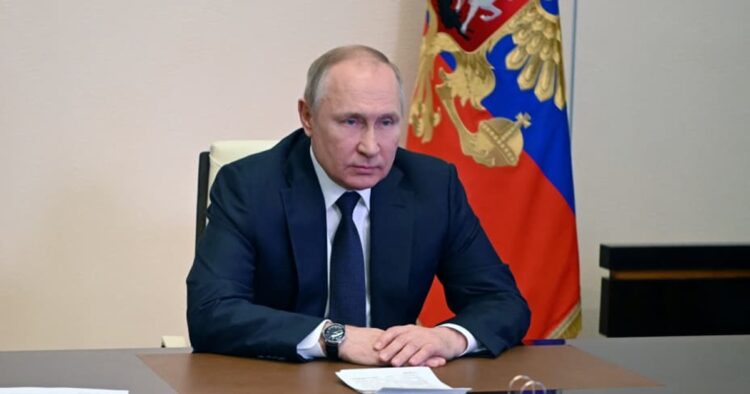Russian President Vladimir Putin made a significant announcement on Friday, proposing an immediate ceasefire in Ukraine under specific conditions. He stated that if Kyiv withdrew its troops from regions annexed by Russia in 2022 and abandoned its plans to join NATO, negotiations would begin promptly.
However, Ukrainian officials have indicated this proposal is unlikely to be accepted, as they insist on full withdrawal of Russian forces from their entire territory and remain committed to NATO membership.
Speaking from the Russian Foreign Ministry in Moscow, Putin emphasized his proposal aimed at achieving a definitive resolution rather than a temporary ceasefire. He expressed readiness to initiate talks without delay and outlined additional demands, including Ukraine’s agreement to remain non-nuclear and impose limitations on its military capabilities. Putin also highlighted the importance of safeguarding the interests of Russian-speaking populations within Ukraine.
The timing of Putin’s announcement coincided with a meeting of the Group of Seven nations in Italy and preparations in Switzerland for a summit aimed at addressing the conflict in Ukraine. Notably, Russia was not invited to the latter gathering. Putin reiterated his call for the lifting of all Western sanctions against Russia as part of any comprehensive peace agreement.
“We urge to turn this tragic page of history and begin restoring unity between Russia and Ukraine and in Europe in general,” Putin stated, emphasizing the need for what he described as “fundamental international agreements.”
ALSO READ: “Putin Woos Investors as Russia’s Economy Thrives Amid Sanctions”
Despite outlining his conditions for ending the conflict, Putin did not introduce any new demands beyond those previously stated by the Kremlin, which include Ukraine’s recognition of Russia’s territorial gains and abandonment of its NATO aspirations.
This proposal thus marks a rare instance where Putin has clearly articulated his terms for resolving the ongoing war in Ukraine. However, it remains to be seen whether these conditions will pave the way for substantive negotiations between the two sides, given the entrenched positions and differing objectives.

















Comments